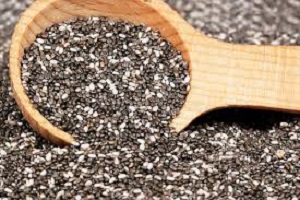Sunflower lecithin: Benefits and Possible Side Effects
Sunflower lecithin: Benefits and Possible Side Effects
Sunflower lecithin use has grown in popularity in recent years as more information about its potential health benefits has been available.

What is Sunflower Lecithin?
Sunflower lecithin is a catch-all word for a variety of fatty compounds derived from sunflowers.
Lecithin can be obtained from a variety of sources, the most common of which are sunflower seeds.
Sunflower lecithin is a mixture of diverse phospholipids, and while many people associate fats with bad things, many phospholipids are vital to human health.
Sunflower lecithin, for example, has a variety of phospholipids and antioxidants, as well as other volatile chemicals that make it a nutritious supplement.
Many individuals are unaware that various kinds of lecithin are found in every cell of our body and serve to maintain the integrity of our cell membranes.
Sunflower lecithin is a natural emulsifier that can aid in the reduction of other fats while also protecting your red blood cells.
Choline, phosphatidylcholine, phosphatidylinositol, and phosphatidylethanolamine are some of the most important phospholipids found in sunflower lecithin.
One of the best things about sunflower lecithin, as opposed to soy lecithin, is that it can be extracted naturally, without the use of chemicals, making it highly popular in health circles.
Because it enhances shelf life and works as an emulsifier, a commercial form of lecithin is extensively used in the manufacture of food, cosmetics, and pharmaceuticals.
During breastfeeding, lecithin supplements can also be used to manage high cholesterol, and digestive difficulties, and to prevent clogged milk ducts.
Although lecithin occurs naturally in many foods, most lecithin supplements are made from eggs, soy, or sunflower seeds.
Canola, cottonseed, and animal fats are other sources of lecithin.
Soy is one of the most frequently produced crops in the United States, with 94% of it genetically modified.
Soy is a low-cost source of lecithin. To extract lecithin from soybean oil, chemicals such as acetone and hexane are utilized.
However, lecithin made from sunflower oil is becoming more popular, probably as a result of the need to list allergies in foods.
Sunflower lecithin is also an option for individuals who want to avoid genetically modified crops.
The extraction procedure is often gentler, using cold pressing rather than chemical solvents.
Lecithin Powder is a potent component that can act as an emulsifier (a mixture of two repellent liquids, such as oil and water), thickener, and stabilizer all at the same time.
Lecithin Alternatives
The lecithin Granules, Clear Jel Instant, Gum Arabic Powder, Potato Starch, Almond Flour, Tapioca Starch, or Xanthan Gum
Fun fact
Lecithin is a natural component of all of us, and it can be found in our brains, livers, and every cell of our bodies.
Sunflower Lecithin Benefits
Sunflower lecithin is beneficial to the liver and heart function, as well as inflammation.
It is also beneficial to the brain, blood pressure, nervous system, and cardiovascular health, among other things.
May Aid in the Improvement of Heart Health
Sunflower lecithin, as an emulsifier, can assist to regulate the fat levels in your bloodstream, which can aid to improve heart health.
This reduces your chances of developing atherosclerosis, having a heart attack, or having a stroke, which protects your long-term heart health.
Could Help with Brain Protection
Some of the main phospholipids found in lecithin have been linked to brain health and the repair mechanisms required by neural cells.
Regular supplementation with this lecithin can hasten neuronal regeneration while also protecting the neurological system.
Choline, a phosphatidylcholine component, aids in brain growth and may improve memory.
Because of alterations in the memory center of their brains, infant rats who received choline supplements had permanent memory enhancement.
The brain changes were so obvious that researchers could tell which rats had received additional choline, even when the rats were elderly.
Because of the action of chlorine on the brain, it has been hypothesized that lecithin may benefit persons suffering from neurologic illnesses, Alzheimer’s disease, and other kinds of dementia.
Improves Liver Integrity
When the liver is stressed or dealing with a big amount of excess fat, it can exacerbate a variety of other health issues.
The chances of this happening are considerably reduced if you have enough lecithin in your system because it can minimize the amount of extra fat in your bloodstream.
Blood Pressure Levels May Be Balanced
When there is too much fat in the circulation, the arteries are more prone to harden as the fat accumulates on the walls.
When the arteries constrict, blood pressure rises, putting additional strain on the cardiovascular system.
With this lecithin in your diet, you can reduce your chances of developing certain cardiac problems.
Immune function strengthened.
Soy lecithin supplementation may improve immunological function, especially in diabetics.
A Brazilian study on rats discovered that daily lecithin administration enhanced macrophage activity by 29%.
Macrophages are white blood cells in the body that engulf debris, microbes, cancerous cells, and other foreign materials.
In addition, the number of natural killer cells known as lymphocytes, which are essential to the immune system, increased by 92% in non-diabetic rats.
Human research is now required to corroborate these findings.
May Aid in Arthritis Management
Another benefit of sunflower lecithin is that it lubricates joints and reduces inflammation throughout the body, which can help you feel younger and stay active as you age.
Hormone Balance May Be Aided
Soy lecithin is the most common substitute for sunflower lecithin, but it can raise estrogen levels and create a variety of problems, especially in men who consume it.
You can keep your hormone levels in check by eating sunflower seeds.
As a breastfeeding aid
For women who have obstructed milk ducts, lecithin may be recommended as a prophylactic treatment.
Some breastfeeding mothers may encounter plugged milk ducts, which cause breast milk to flow incorrectly through the duct.
This condition is uncomfortable and complicates breastfeeding.
It can also cause mastitis, an infection of the breast tissue that affects about 10% of breastfeeding women in the United States.
The Canadian Breastfeeding Foundation recommends that people who have recurring clogged milk ducts consume 1,200 mg of lecithin four times a day as a preventative strategy to help prevent mastitis and trouble nursing.
However, lecithin does not function as a therapy for people who already have clogged ducts.
Lowering cholesterol
According to research, a diet high in lecithin may boost good HDL cholesterol while decreasing bad LDL cholesterol.
Supplements containing lecithin have also shown promise in decreasing cholesterol.
Participants in a 2008 study were given 500 milligrams (mg) of soy lecithin per day.
After two months, total cholesterol was lowered by 42 percent on average, and LDL cholesterol was reduced by 56.15 percent.
Improved digestion
Ulcerative colitis is a type of inflammatory bowel disease (IBD) that affects around 907,000 persons in the United States.
Lecithin may aid in the relief of digestive distress in persons suffering from the illness.
According to ResearchTrusted Source, lecithin’s emulsifying function promotes mucus in the colon, protecting the gastrointestinal lining.
This could be due to the fact that lecithin contains phosphatidylcholine (PC), which is also found in mucus.
People with ulcerative colitis have 70% less PC than those with other types of IBD or those who do not have the disease.
Although research is limited, anecdotal evidence suggests that patients suffering from digestive difficulties other than ulcerative colitis may benefit from lecithin consumption.
Other applications
Lecithin has been marketed as a treatment for:
- gallbladder illness
- bipolar disorder
- anxiety
- eczema, dermatitis, and dry skin diseases
It should be emphasized that the study on the efficacy of lecithin in managing certain illnesses is either very restricted or nonexistent.
Because lecithin supplements are not regulated by the FDA, they should be thoroughly investigated before taking them.
The United States Food and Drug Administration considers lecithin to be “generally recognized as safe” (GRAS) (FDA).
It is unlikely to induce unpleasant responses when used in appropriate amounts. The greatest way to receive lecithin is through food.
The FDA does not inspect supplements for safety or purity. Before using supplements, people should do their homework and research the brand names.
If a person has excessive cholesterol or a family history of heart disease, they should consult their doctor before taking the supplement.
If an adverse response occurs, it may cause the following symptoms:
- diarrhea
- nausea
- stomach discomfort
- increased saliva in the mouth
- sense of fullness
While the Canadian Breastfeeding Foundation recommends lecithin for breastfeeding mothers, more study on lecithin supplementation during pregnancy and lactation is needed.
What Is the Best Way to Use Sunflower Lecithin?
Sunflower lecithin is generally found as a dietary supplement ingredient in protein powders since a lack of lecithin can have a wide range of detrimental impacts on overall health.
Sunflower lecithin, on the other hand, can be found in cosmetics and certain foods.
Because this type of lecithin is often in the form of a dehydrated powder, it is frequently included to health shakes and smoothies.
It can also be used in place of butter or other oils in cooking. It offers a smooth and creamy texture to any recipe that needs a boost of health.
What Is the Difference Between Sunflower Lecithin and Soy Lecithin?
Sunflower lecithin is a mixture of phospholipids extracted from sunflower seeds using a mechanical and chemical-free technique, resulting in a very pure product.
It also contains a lot of choline (phosphatidylcholine), although soy lecithin has a somewhat different structure.
Soy lecithin, on the other hand, requires chemicals to extract from soybeans, but it also contains more estrogen, which can create hormonal issues in the body.
Because soybeans are sometimes genetically altered, there are some concerns concerning soy lecithin; as a result, the sunflower type remains immensely popular and trustworthy.
Side Effects of Sunflower Lecithin
Aside from the benefits, there are some potential adverse effects, such as gastrointestinal difficulties, allergic responses, and pregnancy and nursing considerations.
The addition of such a concentrated quantity of phospholipids to the diet can result in an unfavorable reaction in the gut, such as diarrhea, inflammation, or constipation.
Moderate use, on the other hand, should help to avoid this. Those who are allergic to sunflowers, as well as pregnant and breastfeeding women, should avoid this sort of supplement due to the estrogen levels and the effects this lecithin can have on hormone levels.
Dosage
There is no established dose for lecithin. As a general rule, do not exceed 5,000 mg per day.
Before contemplating supplementation, it is best to get lecithin through food sources. Lecithin can be found in a variety of entire foods, including:
- Organ meats,
- Red meat,
- Shellfish, eggs,
- Cooked green vegetables like Brussels sprouts and broccoli,
- Legumes like soybeans, kidney beans, and black beans.
Natural lecithin derived from food sources poses no health hazards.
Frequently Asked Question
Why is lecithin bad for you?
It may result in adverse symptoms such as diarrhea, nausea, stomach pain, or fullness.
Lecithin is probably safe to apply to the skin for most individuals.
Is it true that sunflower lecithin aids in weight loss?
Some people take lecithin supplements to help them lose weight.
Lecithin may provide some health benefits, but there isn’t a large body of evidence tying it to weight loss at the moment.
Is sunflower lecithin an inflammatory substance?
The linoleic acid found in sunflower lecithin aids in the release of cytokines during inflammation.
When given directly to the wounded, the cytokine is an inflammatory mediator that aids in wound healing.
Is it true that sunflower lecithin aids in weight loss?
Some people take lecithin supplements to help them lose weight.
Lecithin may provide some health benefits, but there isn’t a large body of evidence tying it to weight loss at the moment.
Can you consume sunflower lecithin on a daily basis?
When administered orally: Lecithin is widely used in food.
When used as a supplement in dosages of up to 30 grams daily for up to 6 weeks, it is most likely safe.
It may result in adverse symptoms such as diarrhea, nausea, stomach pain, or fullness.
What is the purpose of sunflower lecithin powder? What is sunflower lecithin powder used for?
Sunflower lecithin has applications in food supplements and pharmaceuticals, specifically liposome encapsulation, yellow fat spreads, baked goods, chocolate, and animal feed
Which is better sunflower lecithin powder or liquid?
Because powder lecithin contains less fat than liquid lecithin, many health-conscious people will consider this when deciding which to use.
In addition to the health benefits, many people prefer the powder form because it is much easier to clean up.
Does sunflower lecithin powder have a taste?
This lecithin tastes fantastic. It gives the tea a creamy texture and a slight caramel flavor. It’s a meal with the protein in the gelatin.
Why is sunflower lecithin beneficial to your health?
Sunflower lecithin, as an emulsifier, can help to balance the fat levels in your bloodstream, which can help to improve heart health.
This can reduce your risk of atherosclerosis, heart attacks, and strokes, thereby safeguarding your long-term heart health.
What exactly is the difference between lecithin and sunflower lecithin?
Soy lecithin is derived from soybeans, whereas sunflower lecithin is derived from sunflowers.
Soy lecithin extraction, on the other hand, is a chemical method, whereas sunflower lecithin extraction is a natural method.
This is the primary distinction between soy lecithin and sunflower lecithin.
Can you cook with sunflower lecithin powder?
Baking: Lecithin can aid in the preparation of bread and other baked goods such as cinnamon rolls and pizza.
It improves the elasticity of the dough, which improves the product and makes the finished goods chewier and lighter.
Conclusion
Lecithin is a fatty molecule found naturally in the body as well in foods such as soy, sunflower, egg yolk, and other animal products.
While all lecithin has health benefits, sunflower lecithin is the healthiest and most useful.
It is high in vitamins, minerals, and other vital substances that the body needs. It’s also the only non-GMO, confirmed lecithin source with a minimal allergy profile.
Regular ingestion of sunflower lecithin may improve cognitive function, breast health, skin health, digestive health, and cholesterol levels.
Sunflower lecithin is available as a supplement in the form of a capsule, powder, liquid, extract, or granules.
Because all of these forms have potential benefits, the form you should eat is a matter of personal preference.


